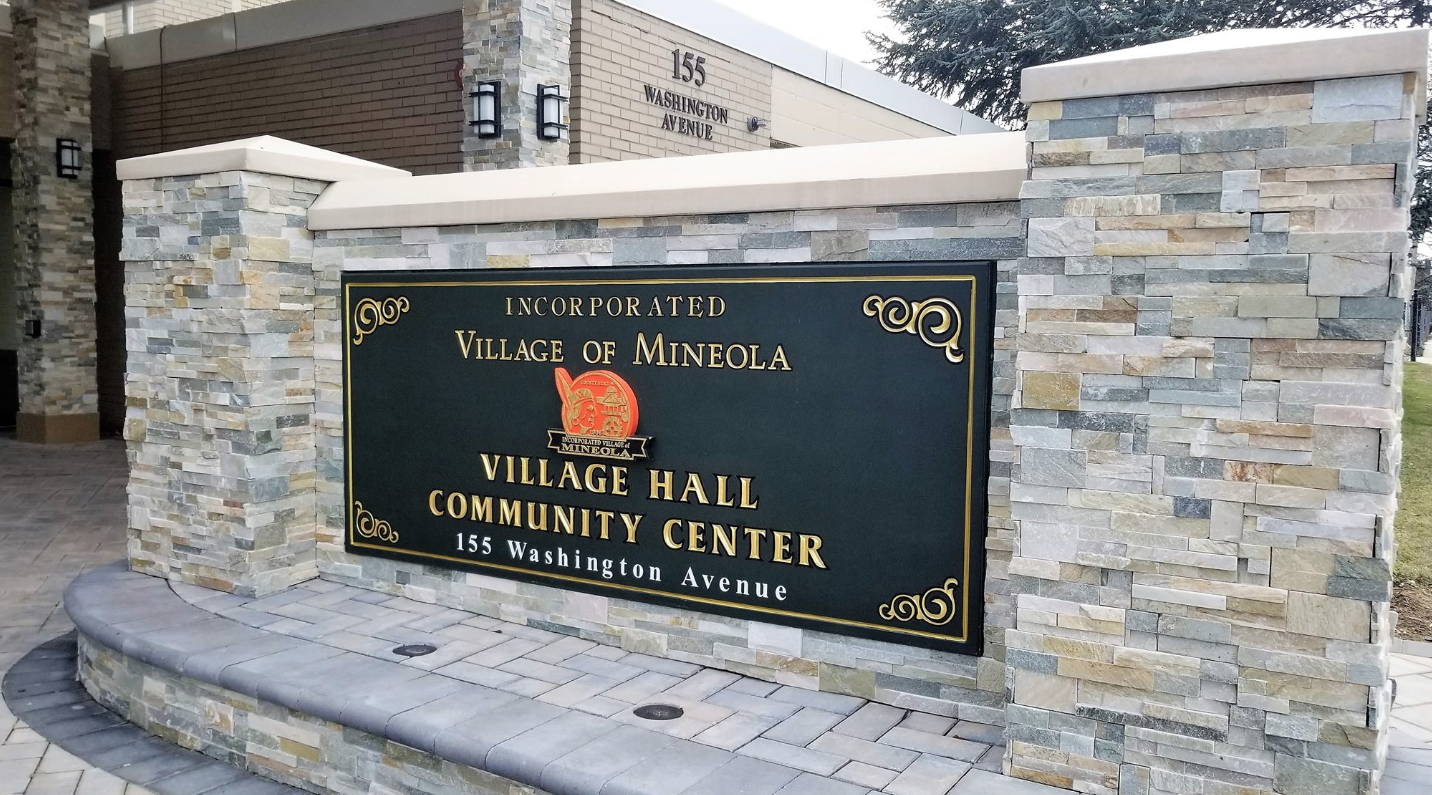The Village of Mineola’s $24,451,264 budget for 2021-22 was discussed and adopted during a public hearing on April 14.
The budget is a 2.98 percent increase from the $23,743,406 budget for 2020-21 and comes with a tax increase of 1.9 percent.
Village Clerk Joseph Scalero said that given the financial challenges posed by the COVID-19 pandemic, the modesty of the increase is an accomplishment. He credited the “very sound budget with no cuts and a very minimal tax increase” to the board’s shrewd budgeting decisions over the years.
“The main thing about this budget is that every municipality this year, from federal to local, has a budget that’s strained by COVID, and we’re really no different. We took a tremendous hit in nontax revenues because of COVID,” Scalero said. “The positive side, though, is that because of the village board’s prudent budgeting over the last 10 years, they were able to absorb the shortfalls within their budget much better than many municipalities have been able to – to the point where they have only needed to raise taxes 1.9 percent this year. This is simply a product of prudent budgeting and careful spending.
“The budget, while it has that small increase, doesn’t make any cuts in any services; it continues to provide the full range of services that we provide,” Scalero added.
The village’s general government category is set to receive $4,968,236, making up the largest portion of the budget and increasing slightly from the previous year. Allocations toward the village’s water fund also increased slightly to $2,916,408. Debt service will receive $1,209,593, an increase of $373,785 over last year.
The budget also includes decreases in allocations for public safety, which will receive $1,777,956, and health, which will receive $60,000. Other categories within the budget, such as transportation and employee benefits, remained similar to the 2020-21 fiscal year.
Scalero said that ongoing infrastructure projects were another factor in the village board’s formulation of the budget, specifically pointing to state-mandated well upgrades.
Following the detection of carcinogens like 1,4-dioxane, which has been linked to liver and kidney damage, cancers and possible reproductive effects in those who are exposed long-term, in water systems throughout Long Island in 2019, the New York State Department of Health proposed regulations that would implement strict maximum contaminant levels.
The village then took on the upgrade of well 4 to meet the state’s proposed 1,4-dioxane and per- and polyfluoroalkyl substances (PFAS) treatment requirements.
“We have some major infrastructure projects going on, which have to continue and will continue,” Scalero said. “Most of them are mandated by the state, like all of our well upgrades, which will meet state-mandated requirements this year. As is the case, that puts lots of pressure on our budget, but those projects have to go forward. So, we were able to do it and still absorb those costs… By smart budgeting, we were able to offset the losses in other areas. We were probably already in a better position when COVID hit than many places were.”



